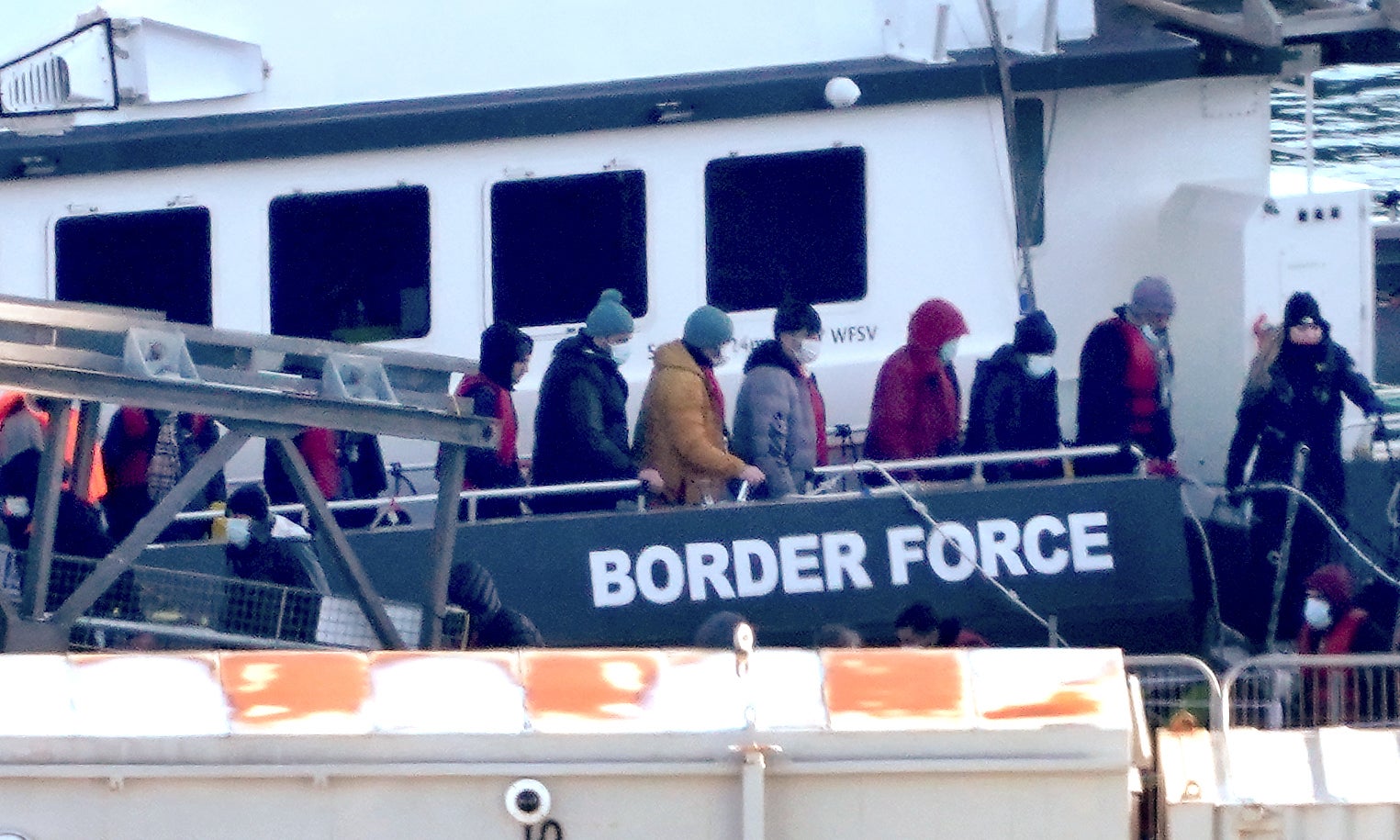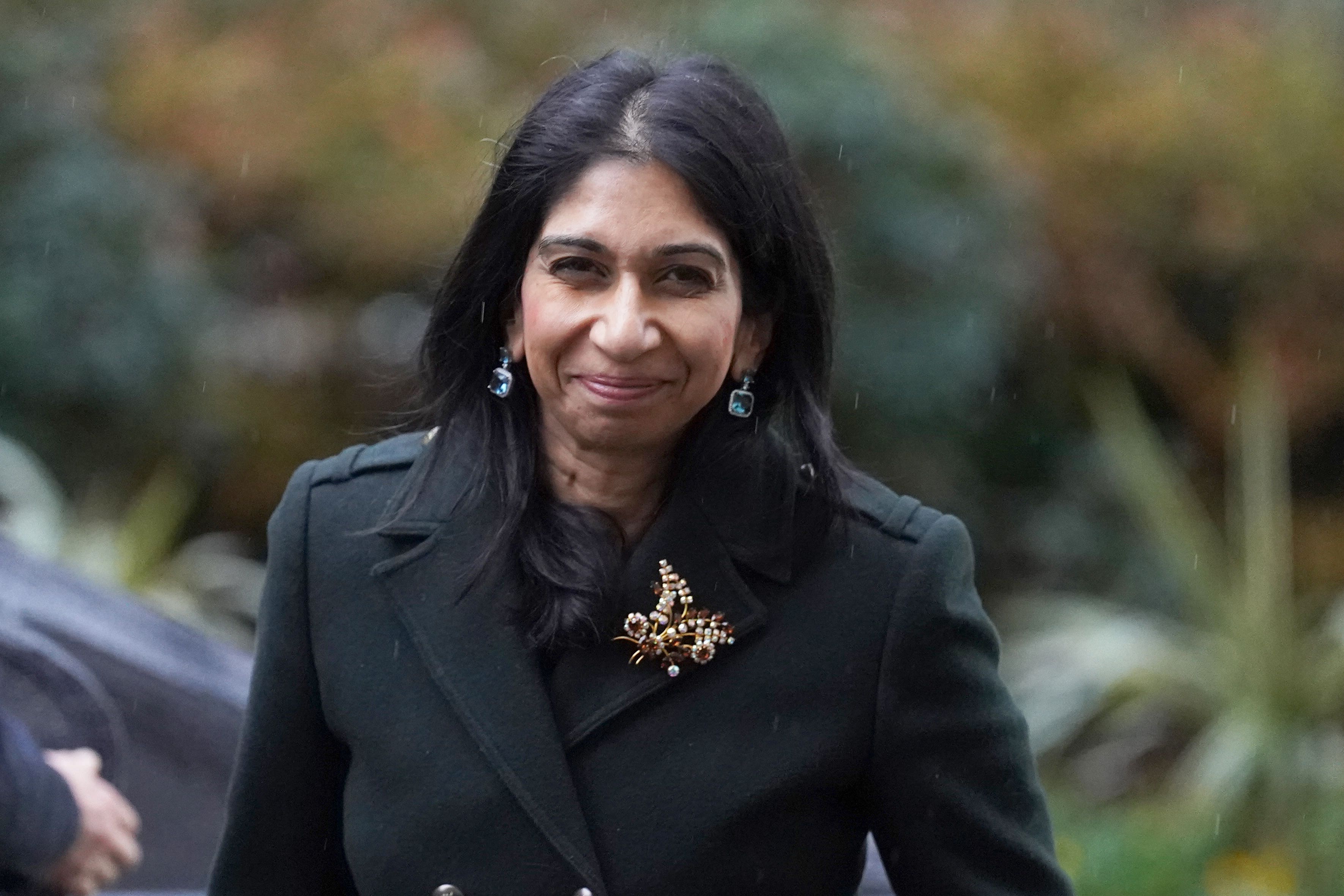Suella Braverman’s claims modern slavery victims ‘gaming’ system questioned by Home Office’s own stats
Official figures question prime minister and home secretary’s claims migrants are ‘gaming the system’

Your support helps us to tell the story
From reproductive rights to climate change to Big Tech, The Independent is on the ground when the story is developing. Whether it's investigating the financials of Elon Musk's pro-Trump PAC or producing our latest documentary, 'The A Word', which shines a light on the American women fighting for reproductive rights, we know how important it is to parse out the facts from the messaging.
At such a critical moment in US history, we need reporters on the ground. Your donation allows us to keep sending journalists to speak to both sides of the story.
The Independent is trusted by Americans across the entire political spectrum. And unlike many other quality news outlets, we choose not to lock Americans out of our reporting and analysis with paywalls. We believe quality journalism should be available to everyone, paid for by those who can afford it.
Your support makes all the difference.The government has been accused of spreading “myths” on modern slavery as official figures show the vast majority of claims by small boat migrants are legitimate.
Figures released for the first time on Thursday question repeated claims by the prime minister and home secretary that they are “gaming the system”.
Only 7 per cent of the over 83,000 people who have crossed the English Channel in dinghies since 2018 were referred to the National Referral Mechanism (NRM) - a process used to assess whether people are victims and grant them protection.
The Home Office said that 85 per cent were found to have “reasonable grounds” that they were a victim of human trafficking, slavery, servitude or forced labour.
Of those people, a further 85 per cent received conclusive grounds decisions, meaning that after probing the evidence the Home Office confirmed they needed protection.
Albanian nationals made up the largest number of small boat migrants referred to the NRM in 2022, followed by Sudanese people, Iranians, Eritreans and Vietnamese migrants.
The home secretary has repeatedly claimed that modern slavery laws are being “gamed” by small boat migrants, despite the Office for Statistics Regulation warning that available figures do not support the assertion.
In December, a group of United Nations experts said they were “alarmed by the rise in unsubstantiated claims by public officials and government departments regarding persons seeking protection under the Modern Slavery Act and the National Referral Mechanism”.
Despite the lack of evidence, ministers have brought in new laws making it more difficult for victims of slavery and human trafficking to gain support.
It has also left the modern slavery watchdog post vacant since April 2022, and no recruitment has taken place since Suella Braverman scrapped a previous appointment process in December.
The former Independent Anti-Slavery Commissioner had vocally opposed punitive new laws and questioned the government’s claims that small boat migrants were abusing protections.
Dame Sara Thornton told The Independent: “I welcome the fact that this data on trafficking referrals from small boats has eventually been published. It sheds a bright light on the myths that have been promoted.”
A Home Office report showed that 70 per cent of NRM referrals for small boat migrants are still awaiting a decision.

It said that officials, including police and Border Force staff, can refer suspected victims for support at any stage after arrival into the UK and they may “be triggered by other immigration events such as detention in preparation” for deportation.
“The prevalence of NRM referrals from within detention has increased in recent years, especially amongst those detained for third country removal,” such as small boat migrants selected for the stalled Rwanda scheme, the report said.
“The number of small boat arrivals in each year with NRM referrals is likely to increase over time as people have more time to be identified, or identify, as a potential victim.”
Most of the small boat migrants being considered under the NRM have also lodged asylum claims, which have hit a new record backlog.
By the end of 2022, over 160,000 asylum seekers were awaiting initial decisions on their applications and the government has announced a new fast-tracking system seeing people from countries with the highest grant rates sent questionnaires.
The Home Office granted protection to more than three-quarters of asylum seekers who had their claim decided last year - the highest annual grant rate in over 30 years.
Nine in 10 small boat migrants claim asylum, but 97 per cent of those who arrived last year are still awaiting a decision because of the backlog and government attempts to declare them “inadmissible” for consideration for passing through France.
Despite the government’s focus on Channel crossings, they accounted for less than half of asylum applications overall in 2022.



Join our commenting forum
Join thought-provoking conversations, follow other Independent readers and see their replies
Comments